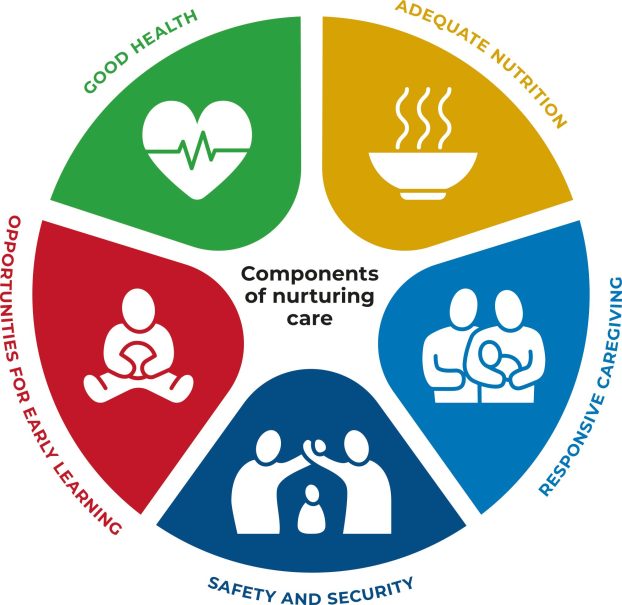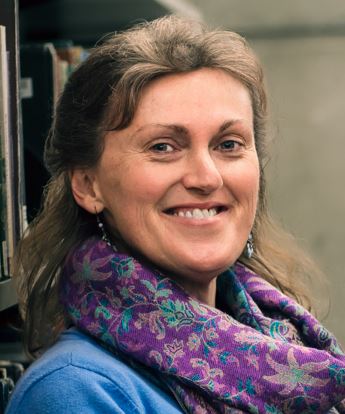Advocacy
In The Field
Policy
Research
Workforce
Early learning: Every child deserves access now. Here’s how we can make that happen

Contributed Content
Sep 23, 2024
Save
The Final Report from the Productivity Commission (PC) into Early Childhood Education and Care was released last week. This two-part series unpacks the Commission's proposed road map that involves many stages over the next 12 years to achieve universal access to early learning.
This is where all children can attend three days a week, regardless of location, ethnicity, special educational needs, family income, or parent’s work or study schedules.Universal access is critical because research shows access to early learning improves children’s chances of a good start to school and increases their ability to flourish into adulthood.The PC said the recent improvements in wages through the Fair Work Commission will assist with the attraction and retention of educators. The Commission states these recent rises are only one step and that future awards need to consider the 20 per cent pay difference and poorer conditions between the school and early learning sectors, even for educators with the same qualifications. It also recommends registration be the same to improve status for early childhood educators.
These are all excellent recommendations, but many educators continue to leave a sector in crisis before the recommendations are implemented.
Why is the sector in crisis?

At its heart, the early childhood education and care sector is supposed to provide opportunities for early learning. This is one of the key components of the internationallyaccepted Nurturing Care Framework by the World Health Organisation, World Bank Group, and UNICEF. This framework is designed to show how children’s health and wellbeing is best supported to ensure children reach their potential.
Figure 1: Nurturing Care Framework
In Australia, children and their families face many barriers to these opportunities, as shown in the table below. These include affordability, high levels of privatisation, a lack of services and educators, complex funding and access to funding, extra challenges in regional, rural and remote (RRR) communities, and access to inclusion support.In the table below, I provide information from reports, government departments, agencies, and organisations on these eight barriers. To illustrate this, I also provide either data from our mixed-methods online survey study involving 82 Australian educators or, where indicated, publicly available data. In the final column, I summarise what the PC states or recommends the Government to do.
Barriers to early learning and how to overcome them
| Barriers to early learning | Information | Data | ProductivityCommission(PC) responses |
| 1. Affordability | Australia is second only toSwitzerland in its highcosts of early childhoodeducation and care fees. | “It’s very sad and hardfor me to share thisstory. We have nosupport and can't afforddaycare for my 11-month-old boy. I workcasually and I’m 8weeks pregnant. Wehave to get an abortionbecause we don’t getany support.” (TheParenthood, p. 33). | The PCrecommends freeservices for low-income families,with fees risingfor those withhigher incomes. |
| 2. High levels ofprivatisation | Australia has some of thehighest levels ofprivatisation of earlylearning services in theworld. In 2020, 49% ofproviders were private for-profit, and about a third ofthese were large providerswith 25 or more services. | Early childhoodeducation and care(ECEC) is big business.The sector turns over$14 billion annuallyacross 16,000 centresproviding long day care(LDC), preschool andout of school care. Theimportance of givingyoung Australians thebest start in life andencouraging workforceparticipation isrecognised in the publicfunding that sustains thesector, currently around$11 billion per annum.This is distributed toproviders ranging fromcouncil-runkindergartens to stockmarket-listed earlylearning chains. AmongThe PCrecommendsincentives forlocal parent,communitygroups andcouncils to startservices.LDC provision, wherethe bulk of governmentsubsidies flow, privatefor-profit (PFP)providers dominate.”(United Workers Union,p. 3). | The PCrecommendsincentives forlocal parent,communitygroups andcouncils to startservices. |
| 3. Lack of services | Due to the market supplymodel, all regional, rural,remote, and low-incomemetropolitan suburbs arepart of a ‘childcare desert’. | “Childcare shouldn’t bea postcode lottery.Improving theaffordability andaccessibility ofchildcare is once in ageneration economicpolicy.” (Former NSWTreasurer, Matt Kean) | The PC saysGovernmentstewardship isneeded to ensureuniversal access. |
| 4.Lack ofeducators | In 2024, vacancies foreducators reached 8000setting a new record. Thisimpacts staff fatigue andmorale, the quality ofeducation and care,and the amount of supportavailable for families.PC says the ‘workforce isfundamental to reform’and calls for ‘improvemeasures to support theECEC workforce’ from2025. | “Management [were]very stressed aboutassessment and ratingand low staff numbers,so took it out on theemployees”. (Educator)Q: What does qualityECEC mean to you?“Having more thanenough staff to ensureeducators are consistentfor children in care andto ensure quality carecan occur even wheneducators are sick andrequire a day off torecover”. (Educator) | |
| 5. Complexfunding model | ‘The ECEC system iscomplex and continuesto evolve in response tothe changing needs ofchildren, families andsociety. … a range ofcurrent systemchallenges andopportunities have beenidentified.’ (The FrontProject, p. 6) | The PCrecommends anew nationalagreement tosimplify rolesand funding. | The PCrecommends a newnationalagreement tosimplify rolesand funding. |
| 6. Complex access tofunding | Accessing subsidies is acomplex process for parentsto navigate. Strict rules about eligibility andlong wait times forprocessing claims can addto family stress during acost-of-living crisis. | "I'm struggling to navigate the website tofigure out if we qualifyand if so how much. Iget that there's a bunchof circumstances, butmaybe someone willknow if it's worth tryingto navigate the multiplequestions and pagesthat require lots ofeffort from me, to haveit say ‘no go away’ atthe end.” (Redditforum). | The PC roadmap includes arecommendationfor welfare andtax reform forparents andreduce thecomplexity of the CCS and abolishthe activity test. |
| 7. Choicelessin regional,rural andremotecommunities | While a lack of choice andavailability affects thosewho live in metropolitanareas, for those in manyregional, rural and remotelocations, there are noservices close by. Thismeans families arechoiceless. | “When the kids are onthe farm you canquestion whether you’reexposing them to thingsyou shouldn’tnecessarily expose themto. Should they be on asprayer? Maybe not.But you’ve got to dowhat you’ve got to do.”(The Parenthood. p. 91) | PC recommendsgrants and lowinterest loans toencourageservices to startin theselocations. |
| 8. Lack ofaccess forinclusionsupport | Children with specialeducational needs can havedifficulty accessing earlylearning or finding thelevel of support they need.Many have to wait untilschool to engage ineducation services. | ‘Children with disabilityare often woefully undersupported in earlychildcare settings. Mycomplex kid can’taccess childcare.’( Sourcekids ) | The PCrecommendsmajor reforms toensure allchildren haveaccess to earlyeducation. |
Tomorrow:
In the second article, I explore some of the challenges facing educators and what the PC recommends the Government does to improve the sector.The Government will need to consider the PC’s recommendations carefully. Families are struggling to access early learning for their children, which has enormous consequences for their future and their ability to work. Our families and children deserve much better.

Marg Rogers is a senior lecturer in early childhood education at UNE and a postdoctoral fellow at the Manna Institute.
Don’t miss a thing
Related Articles



















